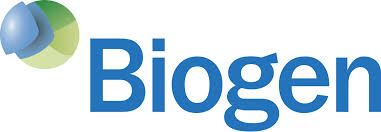- Bone Health
- Immunology
- Hematology
- Respiratory
- Dermatology
- Diabetes
- Gastroenterology
- Neurology
- Oncology
- Ophthalmology
- Rare Disease
- Rheumatology
Samsung Bioepis, Biogen Get CHMP Backing for First Lucentis Biosimilar
The European Medicines Agency’s Committee for Medicinal Products for Human Use (CHMP) has favored marketing authorization for the ranibizumab biosimilar (Byooviz, SB11) based on phase 3 study findings.
European Union authorities have recommended that ranibizumab ophthalmology biosimilar candidate Byooviz (SB11) be approved for commercialization. Byooviz was developed by Samsung Bioepis and references the blockbuster medication Lucentis, a Novartis product that garnered $1.93 billion in 2020 sales.
Officials for Samsung Bioepis and Biogen, which would market the agent, said a final approval on marketing would make this the first biosimilar for Lucentis to be commercialized in the European Union.
The recommendation for marketing approval was from the European Medicines Agency’s Committee for Medicinal Products for Human Use (CHMP), and the final decision on marketing authorization would be made by the European Commission.
Ranibizumab counters the development of blood vessels that contribute to retinal disorders such as neovascular (wet) age-related macular degeneration, diabetic macular oedema, macular oedema related to retinal vein occlusion, proliferative diabetic retinopathy, and choroidal neovascularization.
Officials said the positive CHMP opinion was based on successful phase 3 trial data demonstrating that outcomes for the biosimilar candidate were within prespecified margins for conformance with the originator product.
Mean changes from baseline in best corrected visual acuity and in central subfield thickness were measured. “The improvements in the primary efficacy outcomes remained stable and appeared comparable between treatment groups at all time points up to week 52,” officials said.
An application for Byooviz marketing authorization has been under review by the FDA since November 2020. Samsung Bioepis and Biogen are also seeking to commercialize an aflibercept biosimilar candidate (SB15), which is currently in phase 3 trial evaluation.
Aflibercept also is a vascular endothelial growth factor inhibitor and is employed in the treatment of macular degeneration and metastatic colorectal cancer. There are currently no biosimilars for this product, which was developed by Regeneron Pharmaceuticals and is sold under the brand names Eylea and Zaltrap.
For more reading on Samsung Bioepis and its biosimilars initiative, click here.
For a report on a recent paper on anti–tumor necrosis factor inhibitors by Biogen investigators, click here.
Newsletter
Where clinical, regulatory, and economic perspectives converge—sign up for Center for Biosimilars® emails to get expert insights on emerging treatment paradigms, biosimilar policy, and real-world outcomes that shape patient care.


